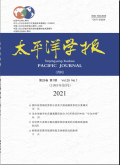太平洋学报2024,Vol.32Issue(4):30-43,14.DOI:10.14015/j.cnki.1004-8049.2024.04.003
日本推动对华"反经济胁迫"议题的研究
Japan's Promotion of the Anti-Economic Coercion Issue Against China:A Case Study on Japan's Release of Nuclear-Contaminated Water
摘要
Abstract
Summary:In recent years,China's economic rise has been perceived by Japan as a threat to its national security interests as a result of an intensifying great power rivalry and a widening power gap between the two countries.Japan believes that this trend will result in the emergence of unfavorable regional orders.Conse-quently,Japan believes it is necessary to collaborate with the United States and other like-minded countries to formulate new rules and norms aimed at constraining China. Against this background,Japan has begun a new focus on addressing the issue of economic coercion a-gainst China.Three main strategies are identified in Japan's promotion of the anti-economic coercion issue.Firstly,multilateral coordination involves Japan in seeking alliances with like-minded countries to establish rules and norms that counter China's economic influence.Secondly,shaping public opinions aims to portray China's economic actions as coercive statecraft and to rally international support for Japan's stance.Thirdly,domestic capacity building encompasses its measures to enhance Japan's resilience against eco-nomic coercion and to prepare for potential economic conflicts. By the end of August 2023,following China's retaliatory measures against Japan's decision to dis-charge nuclear-contaminated water into the sea,Japan had immediately resorted to the confrontation through the anti-economic coercion issue.Rather than concentrating on its own crisis,it wanted to demon-strate both domestically and internationally the necessity and effectiveness of so-called anti-China's eco-nomic coercion. The study concludes by discussing the implications of Japan's anti-economic coercion strategy on Si-no-Japan relations and the international community.It suggests that Japan's narrative,while aimed at con-taining China,is characterized by double standards and instrumentalism,diverging from the principles of multilateralism.The need for a more nuanced understanding of economic security and cooperation is empha-sized,along with a call for a reevaluation of Japan's strategic approach in the context of the global econom-ic order.关键词
经济安全/"经济胁迫"/"反经济胁迫"/中日关系Key words
economic security/economic coercion/anti-economic coercion/Sino-Japan relations分类
社会科学引用本文复制引用
周生升..日本推动对华"反经济胁迫"议题的研究[J].太平洋学报,2024,32(4):30-43,14.基金项目
本文系国家社科基金一般项目"日本对华外交的战略意图与实践困境研究"(22BGJ057)的阶段性研究成果. (22BGJ057)

